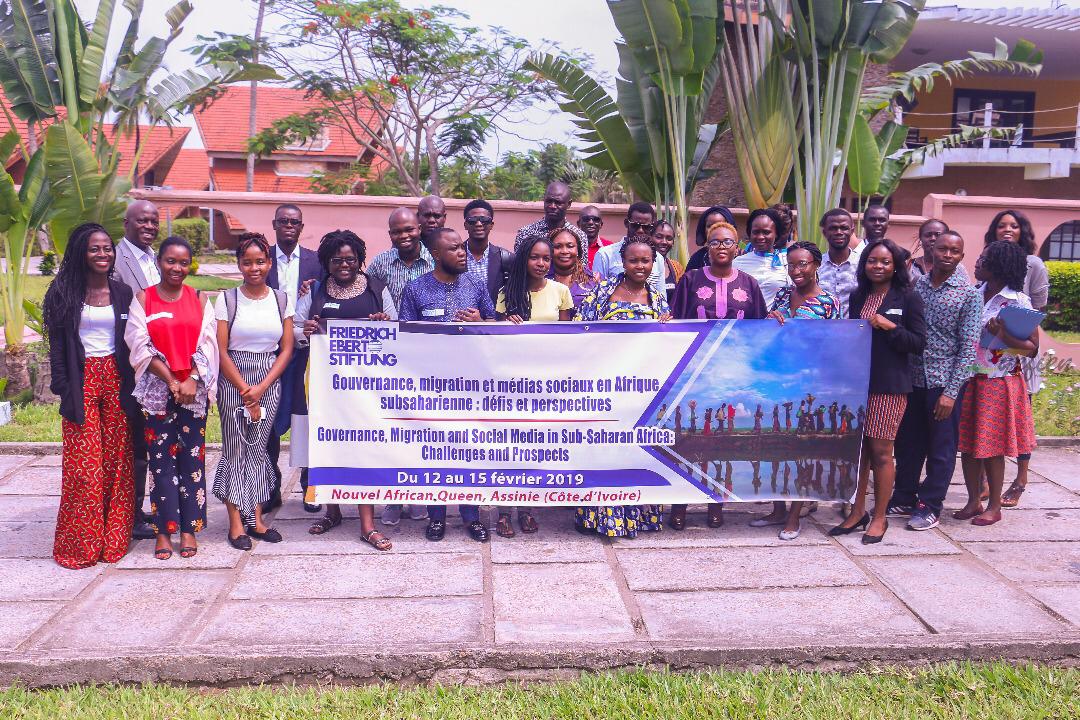The Role of Governance
As highlighted before, one of the major causes of illegal migration is bad governance. Heide Castañeda, in her article titled, “Migration is part of the human experience but is far from natural,” argued that be it voluntarily or involuntarily, people migrate because of combinations of violence, discrimination and economic inequalities among others – which are all linked to bad governance. When governments fail to provide basic livelihood conditions for its citizens such as education, healthcare, employment, and housing, when there are huge inequalities- racial, ethnical, and religious discrimination leading to political instability, people are forced to migrate for security reasons or better opportunities.
The fundamental role of any government is to ensure the welfare of its citizens through good governance. Therefore, to minimize migration, both legal and illegal, governments have to create sustainable livelihood through policies that put people at the center of development. Policies must address social and economic conditions of the people. Governments must invest in policies that trigger private sector growth and job creation. Access to quality education irrespective of economic status or gender must be at the forefront of education reform policies. The health and wellbeing of citizens must be improved through healthcare policies and systems that deliver affordable and quality healthcare to its citizens.
By 2019, thousands of Liberians who immigrated to the U.S due to the civil war, Ebola crisis, and other reasons will be faced with deportation as their legal status expires. Many are calling for an extension of their status to legally stay in the U.S. Why? Because of the lack of trust in their governments to provide the livelihood conditions they currently enjoy in the U.S as compared to home. If their deportation pushes through, their return may create some burden on society. The role of our government is to reintegrate these migrants back into society.
There is a lot that can be learned from other West African countries, like Ghana and Ivory Coast, who have created systems to help migrants return home or have relationships with their home country. In 2018, Ghanaian president, Nana Akufo-Addo, declared 2019 as the “Year of Return.” The whole premise of the project is to reconnect Ghanaians in the diaspora to their country. One of the activities that will happen will be a homecoming and investment summit which hopes to promote business, spiritual and cultural connection between the diaspora and Ghana.
Ivory Coast, on the other hand, has a ministry called “Ministere de l’Integration Africaine et des Ivoiriens de L’Exterieur” which basically works to “build a more integrated West African space and make the Ivorian living externally a citizen.” This ministry has created a Center for Reception, Orientation and Information of Migrants, which invites migrants to come back home. It carries out large scale awareness campaigns on the risks of illegal migration and from 2016 to 2017, had facilitated the return of 800 Ivorians residing in Libya, Gabon and Angola.
The Role of Social Media and Internet Actors
Over the last decade, internet access has grown at an exponential rate and has contributed a fair share to issues of migration the world is experiencing today. Arguably, people have been influenced by information on living conditions and opportunities in other countries as compared to theirs. The “West,” which was built by, and on the backs of black slaves, today is portrayed as heaven. Ironically, our former colonial masters are today our saviors.
Internet actors, such as bloggers and social media influencers, are opinion leaders. We have the power to change the bad narratives of Africa. In Liberia, there is a growing number of platforms that have dedicated themselves to spread accurate, and sometimes positive, information about the country, namely: Sleepless in Monrovia, Media, Lib Positives, The Koloqua Dialogues, among others. But you don’t need to create a blog or organization to make a difference though, your personal social media pages are enough to make an impact. Randall Zuleka has dedicated her I page to display the positive aspects of the country and help to change . Though all is not rosy, this changing of narrative has contributed to a number of Liberians in the diaspora returning with plans of resettling and investing home. We need to continue to shed light on the positive side of our country, including opportunities for investment.
On the flip side, we need to desist from spreading misleading information. False information have the potential of inciting violence and driving away investment – which indirectly could lead to migration, both legal and illegal.
Furthermore, it is also our duty to use our platforms and keep our government and policymakers accountable through balanced and objective analysis on issues of governance, migration and development.
In summary, we want to re-echo that migration is not wrong. However, if you chose to migrate to another country for whatever reasons, do it in accordance with the laws of that country. But as the saying goes, “there is nowhere like home.” We want to encourage Liberians living abroad to consider coming back home so we can all put heads and hands together to rebuild our country. Invest home – start a business, support local businesses, build a house- just contribute some way to the development of our country. We always complain about the state of our country’s systems, and rightly so, but we all need to remember that the government can’t do everything. We as citizens have to play our part while keeping in mind, the only people who can build Liberia, are Liberians.
Authored by Shari Raji & Gerald Hodges

